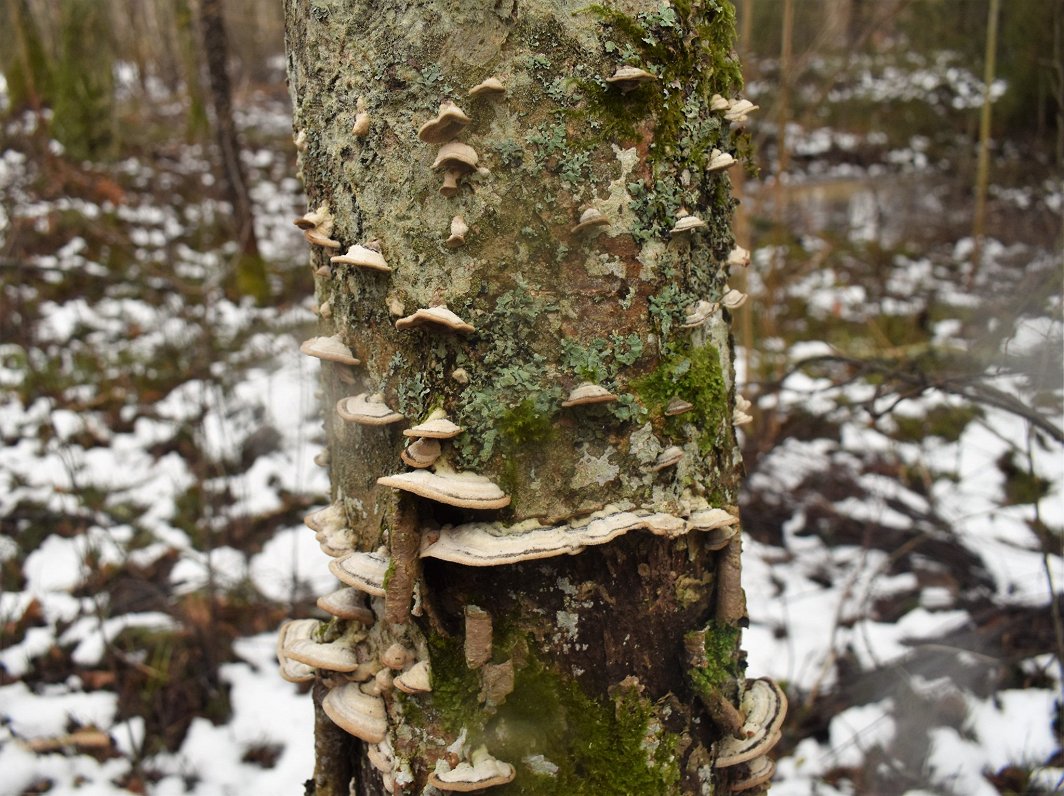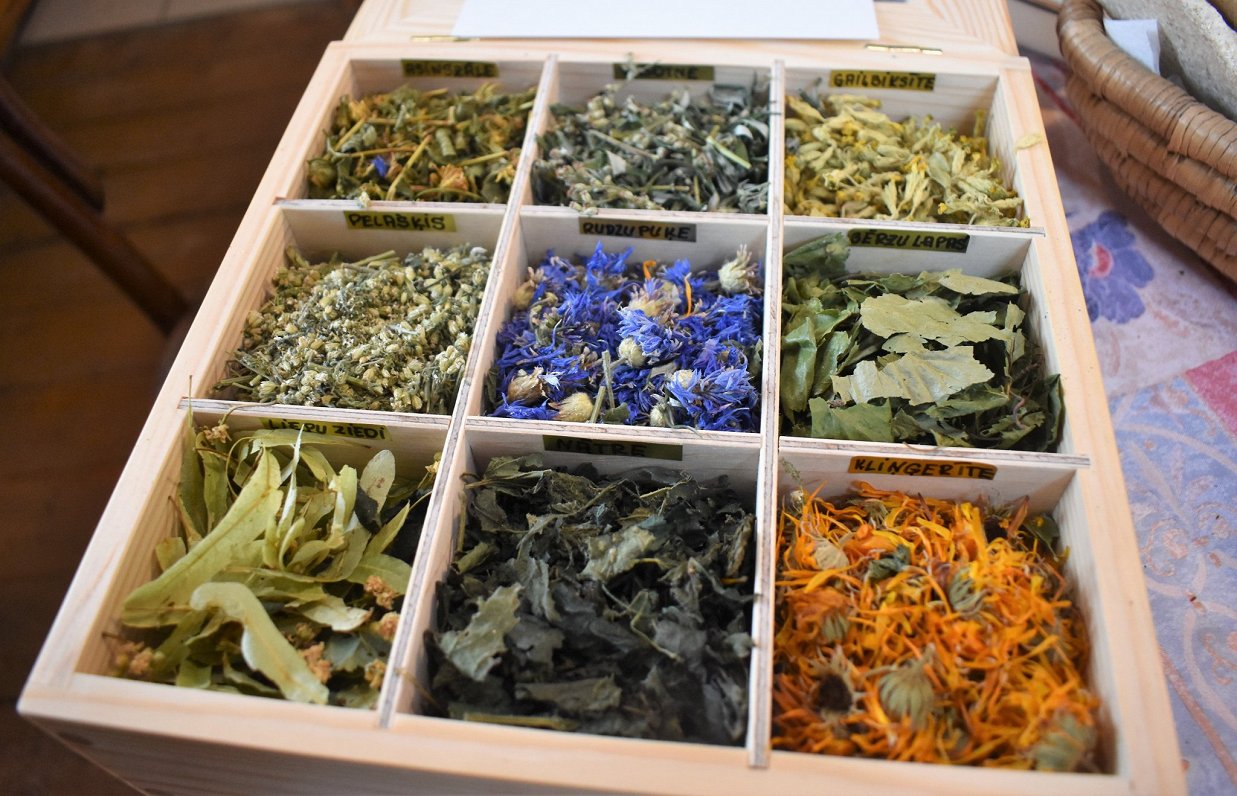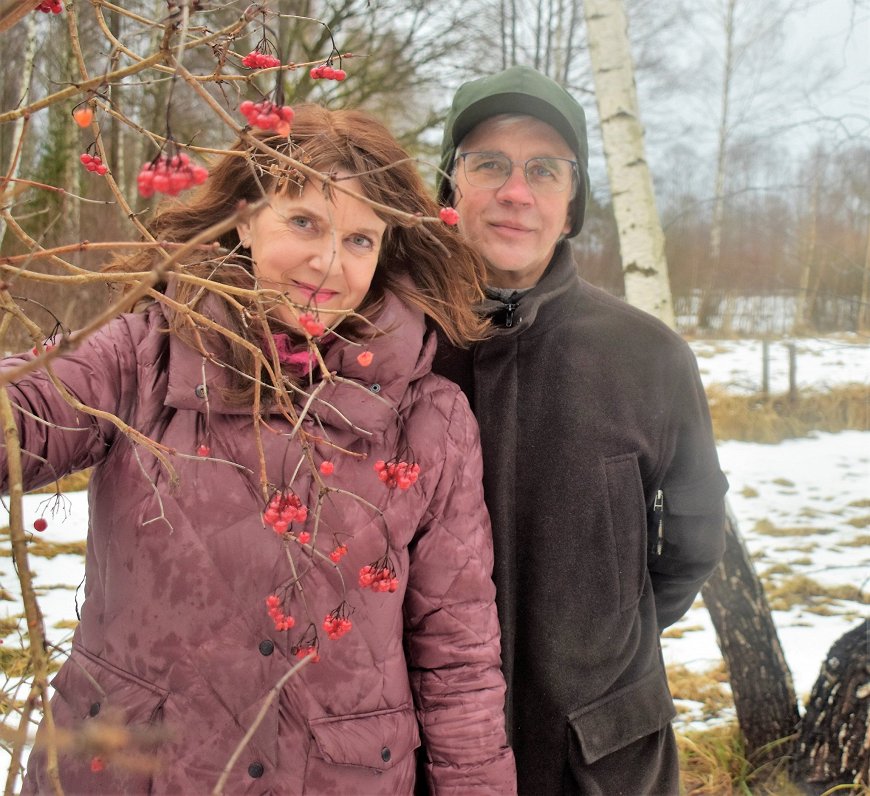Three years ago, Sanita Matule and Indulis Skrebelis bought “Vidnieki” farm in Antiņciems, a village 45 kilometres west of Riga. As well as a beautiful location nestled between Ķemeri spa town, birdwatching paradise Lake Kaņieris and the Gulf of Riga seashore, it turned out to have hidden riches sprouting from the soil.
For 20 years, the previous owner had only used the place as a summer cottage and let the eight hectares of land go wild. Then Indulis mowed one of the meadows, revealing astonishing plant biodiversity.
Sanita began exploring the medicinal and nutritional possibilities of this trove, and since 2021 she has been offering these treats to customers.
“The flora here is so diverse and rich that there’s more than we can possibly use ourselves, so, we started experimenting and sharing with others,” says Sanita. ““My idea is to take the plants that grow wild in our yard and the meadow and turn them into foods packed with vitamins and minerals.”

Sanita and Indulis grew up in Kurzeme and Vidzeme respectively. After they married, they moved to the Riga area and worked in the forestry industry for 30 years. As well as this leafy experience, Sanita had a deep interest in aromatherapy and natural remedies, which she puts to use making Sanitas dabas veltes (Sanita’s Natural Treasures).
Her most sought-after items are teas gathered from the meadow. The 12 varieties presented in a handsome wooden box are a treat for the eyes and the nose as well as the tastebuds.
“Women who have bought the box have told me with tears in their eyes, “thank you, you’ve brought the meadow into my home,”” says Sanita.
A meal at “Vidnieki” is a feast and a botany lesson rolled into one. There are pungent marinated dandelion buds Sanita calls “Latvian capers,” and salt flavoured with a dozen herbs. To make life sweet again, indulge in broadleaf plantain candy balls or lilac syrup. Or a bright red mousse made from honey and guelder rose, a vitamin-charged berry which can be picked in winter (Sanita is posing with a guelder rose bush in the picture here.)
Last October, the couple served 250 diners at al fresco tables during “Home Restaurant Day.” For starters, there was freshly baked bread with nettle and goutweed pesto, followed by barley porridge made according to an old family recipe, rounded off with sweet flat bread with wildflowers, quaffed down with chicory coffee, wild herb tea or wild fruit cordial.
Because “Vidnieki” is situated inside Ķemeri National Park, tilling the soil is prohibited. But the absence of agricultural chemicals from surrounding farms is a big plus for the meadow.
“We’ve turned a drawback into an asset,” says Indulis.
Because “Vidnieki” is so close to the coast, there is a layer of dolomite close to the surface, which the groundwater washes up to enrich the soil. Visiting biologists have counted more than 50 different plants per square metre in the meadow, a level of biodiversity on a par with tropical rainforests.
So far, the couple have cleared just one hectare of meadows, but they plan on opening up broader areas. This is bucking a long-term trend in Latvia of natural meadows succumbing to intensive agriculture, which Indulis believes is strongly encouraged by EU subsidies.

Sanita takes care not to overharvest any of the flowers. In late summer, Indulis mows the meadow with a Soviet-era tractor he bought for a few thousand euros, then the cuttings are removed to enable the flowers to flourish again the next year. This chore becomes a working bee for friends and family, complete with traditional haymaking rituals and music provided by their ethnomusicologist daughter Lauma Matule.
Sanita has also planted fruit trees and makes extensive use of tree fungus. Picking these delights is just the beginning of a chain of processing, packaging and marketing through social media, word of mouth and occasional stalls at the entrance to the national park.
Despite the long hours, at this stage it’s a labour of love rather than profit. So, while Sanita works full time at “Vidnieki,” Indulis has kept his forestry job. They are looking at tourism as an income stream. Hiking trails from the national park run through the property, and they have set up a picnic area where people can relax for a modest fee. They conduct tours of the meadows and would like to build other infrastructure, like restoring an old stone chicory roastery which currently lies in ruins.
But business aside, they love the lifestyle.
“It’s such a joy to go outside and discover all these things rather than to just buy stuff in the shops,” says Indulis.


























